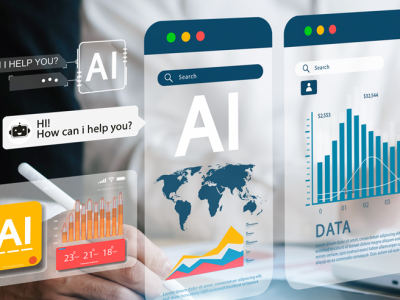SCU Leavey Blog
Media
A thorough understanding of program acceptance rates, tuition costs, employment trends, and other key MBA statistics helps you make an informed choice that aligns with your professional goals and personal circumstances.
For mid-career professionals, pursuing an MBA raises practical questions: Do I need to quit my job? Will I have to relocate? And crucially—how long will it take?
Read our overview of finance master’s degrees and MBAs to help guide your choice and prepare you to succeed on your own terms.
A master's degree can be the ideal way to power advancement to more senior roles, increased earning potential, or a pivot to a new career path. In a world increasingly reliant on data and automation, business analytics has emerged as a standout choice for ambitious professionals who have an interest in data science and strategic decision-making.
A postgraduate business degree can position you to transform organizations—but with so many options available, which path is right for you?
When you’re at a career crossroads and in a competitive job market, a master's degree is often exactly what you need to help you reposition yourself.
Learn about the average cost of an online MBA, covering tuition and hidden expenses. Learn tips for reducing costs through financial aid and scholarships.
Discover how modern businesses use artificial intelligence and machine learning to forecast, prevent fraud, and personalize customer experiences.
Learn key techniques in statistical modeling to enhance your data analysis skills. Discover practical approaches for effective decision-making.
Learn about some of the top business intelligence and data analytics software that businesses today are using to gain insights and boost performance.
Discover how artificial intelligence is revolutionizing data analytics and deepening insights while also presenting new challenges.
Discover ethical decision making examples and the key factors that influence choices in business. Learn how to make confident, values-driven decisions.
This practical guide offers essential steps to navigate changes, manage uncertainty, and adapt effectively in a company restructuring.
Understand the ethical principles, GAAP, IFRS, and auditing standards that govern accountants. Learn more from the Leavey School of Business.
Examine ethical dilemmas in various industries, including conflicts of interest and data privacy, while understanding the factors that influence them.
Compare marketing analytics vs. business analytics to see which career aligns with your interests, strengths, and future opportunities.
Learn about corporate restructuring and how it works. Understand its impact on employees and why it's crucial for business success.
As finance teams integrate more closely with data science, IT, and analytics departments, professionals find themselves working on cross-functional initiatives. Explore how SCU’s Online MSFA program prepares leaders for AI-driven finance and strategic decision-making in a digital economy.
Explore 10 business analyst projects that demonstrate real-world skills, practical experience, and portfolio-ready insights.
Master budgeting and forecasting with techniques, examples, and modern tools. Learn how to create accurate financial projections for your business.




















